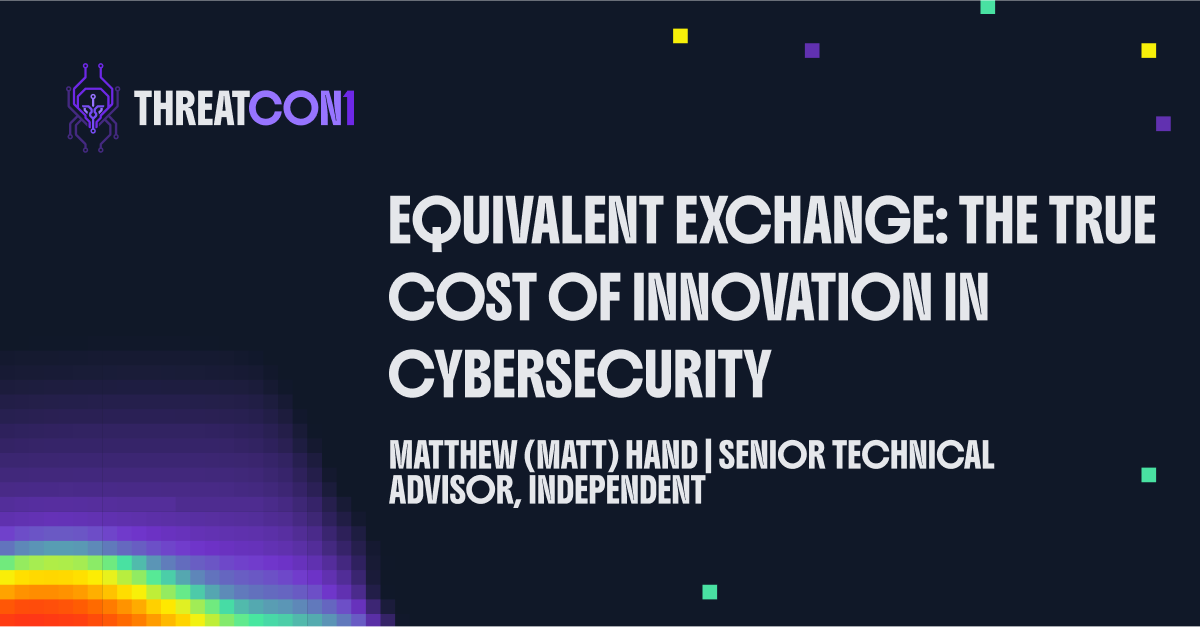Equivalent Exchange: The True Cost of Innovation in Cybersecurity

00:00
/
00:00
Most cybersecurity leaders say they want innovation. Too often, what they call innovation is structured execution with better branding. It is a sprint item, a pilot program, or a tool integration. It is scheduled, reported, and managed, but rarely transformative.
Real innovation does not begin with a roadmap. It begins with proximity to the problem, recognition of friction, and the conviction to act when the path forward is not yet clear. In cybersecurity, innovation is rarely clean or comfortable. It happens in the margins, in the quiet space between assigned tasks and operational urgency. It is when a threat analyst builds something extra. It is when a detection engineer rewrites logic to catch what others miss. It is when teams surface a small fix that reveals a much bigger flaw. These moments often expose systemic risks the organization has failed to address.
This talk challenges conventional thinking about innovation in cybersecurity. It confronts the myth that innovation can be systematized without sacrifice. It argues that innovation only becomes real when leaders are willing to give something up: comfort, control, or certainty, in exchange for progress. That is the equivalent exchange;the price leaders must pay to let new ideas survive long enough to matter.
Drawing from experience leading high-impact technical teams across threat hunting, vulnerability research, data science, and incident response, this session outlines what it takes to lead innovation in the real world. It covers how to recognize the signals that matter, protect the people doing unasked work, and ensure that breakthroughs do not vanish when individuals move on. It also addresses where organizations typically fail: treating innovation as a side project, rewarding personality over process, and assuming progress can be owned instead of supported.
This is not a theoretical leadership session. It is a challenge. It asks attendees to reconsider what they have called innovation, and whether they have really made room for it.
Innovation has a cost. Nothing new gets built without something being given up. Time, certainty, control, something has to move first. It starts with leadership.

